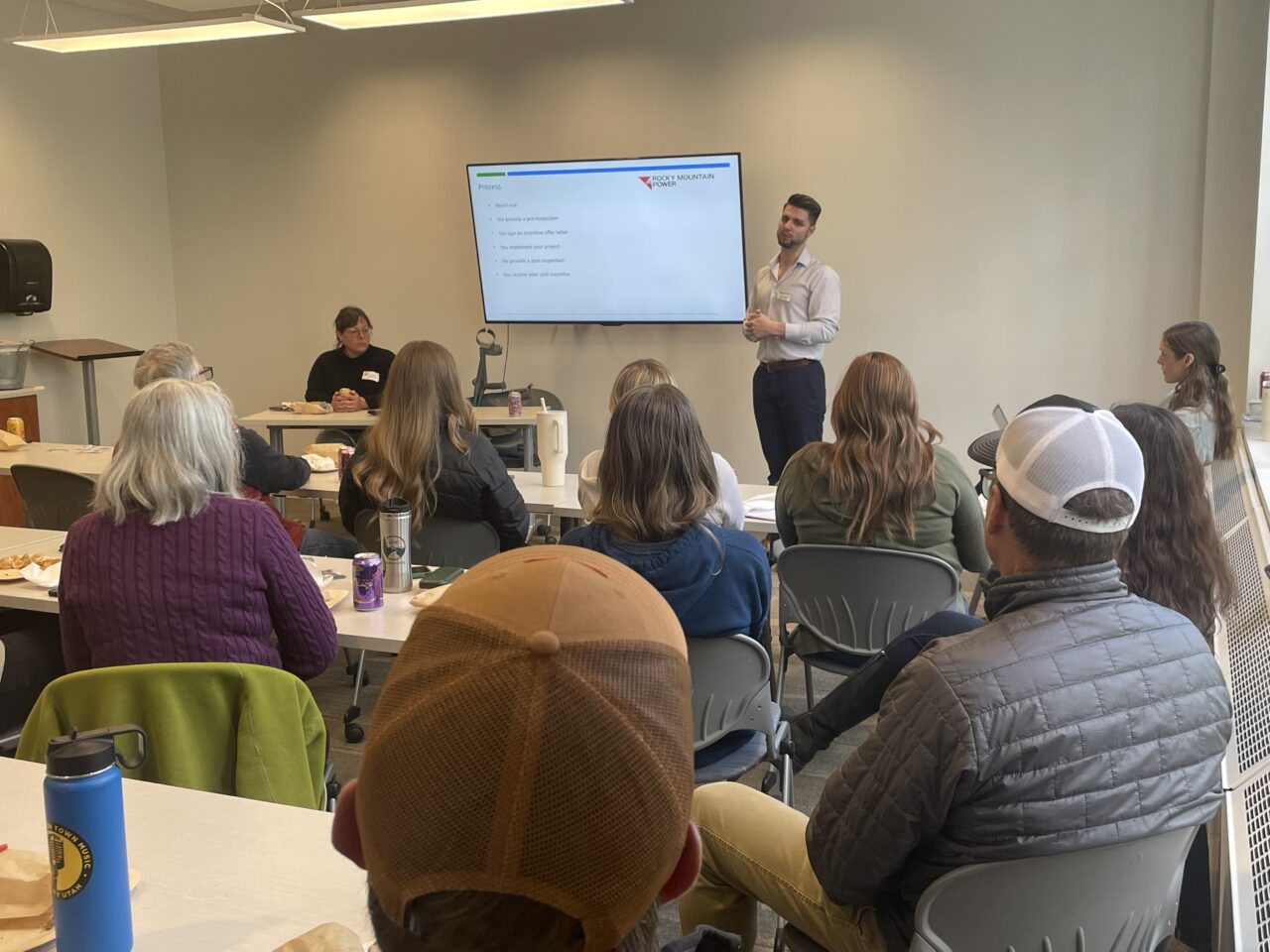
Our May Lunch and Learn focused on energy management and energy efficiency strategies for businesses to reduce usage and save on utility bills. We heard from Evan Heil and Kate Whitbeck from kW Engineering, a partner of Rocky Mountain Power’s WattSmart program, and from Ben Liegert and Allan Hilton with Basin Recreation’s Facilities team. Read below for some key takeaways and lessons learned from kW Engineering, Basin Recreation, and the MARC.
Key takeaways:
kW has free energy management services to offer Park City and Summit County businesses and can advise on efficiency upgrades, including available utility incentives.
- kW Engineering is here to help: At no-cost and with cash incentives available, kW can help businesses improve their building’s energy efficiency through multiple pathways including energy benchmarking, improvements to building system controls, and upgrades to building envelopes, HVAC systems, and lighting.
- Understanding your utility bill: The “Demand Charge” on your Rocky Mountain Power bill is where energy management and efficiency projects will produce the most savings for your business. This charge represents the highest amount of energy used in 15-minute intervals during a billing cycle. By focusing on reducing your building’s greatest energy loads, you can achieve monthly savings while also helping to extend the life of building equipment.
- How to get started with energy benchmarking and management: Start tracking your building’s energy use using your monthly utility bills. You can do this through Energy Star’s Portfolio Manager or by starting a simple spreadsheet that looks at monthly electricity and gas usage over the last few years. Need help? Reach out to Celia Peterson or Megan Nick to get started.
Basin Recreation continues to see the benefits of energy efficiency improvements at the Fieldhouse.
- The facilities team at Basin Rec has been working on improvements to their buildings over the last 18 months. This included a no-cost building walkthrough with kW Engineering at the Fieldhouse, where multiple actions were identified to reduce energy use and improve the building control systems.
- Since updating their building control software system, Basin Rec has seen a consistent decline in monthly energy usage. They are also seeing energy use go down from repairing solar inverters and implementing other efficiency measures.
- A key to Basin Rec’s success is internal support for facility improvements. By having a sustainability team made up of staff members from different departments who are passionate about driving change from within, Basin Rec continues to make sustainable improvements across their organization.
The approach to energy efficiency at PC MARC continues to evolve through lessons learned at its facilities.
- Keeping an eye on electricity AND natural gas usage is critical for effective energy management. During the wintertime, natural gas use is considerably higher than electricity in Park City. As a major source of emissions, and without a feasible renewable alternative (yet), natural gas must be included in energy benchmarking and efficiency measures.
- The MARC has taken advantage of several incentives over the years, including lighting controls and fixture upgrades, installation of sensors in the basketball courts, and efficient pool pumps.
- A focus on practicality and occupant needs is essential. While lighting sensor technology can be a nuisance in office spaces, simple solutions – like hanging a thermal blanket over a drafty door – can result in considerable savings. As a business, take the time to evaluate which efficiency upgrades will be most cost-effective for your operations. And remember, efficiency, especially related to heating spaces, is the cheapest form of energy you can use!